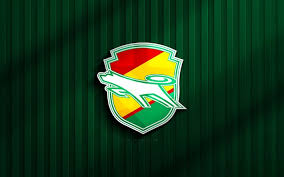JEF United Chiba FC stands as a proud symbol of Japanese football, carrying a rich history and dedicated fan base. Known for its resilience and community spirit, the club has been a mainstay in Japan’s evolving football landscape. This article provides an extensive exploration of JEF United Chiba FC, delving into its history, key players, strategic development, and recent performances. Whether you’re a long-time supporter or new to the club, this guide offers in-depth insights into what makes JEF United Chiba a unique and vital part of Japanese soccer.
The Historical Journey of JEF United Chiba FC
Understanding the origins and evolution of JEF United Chiba FC establishes a strong foundation for appreciating the club’s current stature. Founded over four decades ago, the club has undergone numerous transformations, reflecting both the challenges and successes of Japanese football ai88bet.
JEF United Chiba FC was established in 1946 as a company team for JEF United Ichihara, rooted in the city of Chiba. It initially competed in regional leagues before ascending to higher tiers of Japanese football. The club’s early years were marked by rapid growth, driven by strategic management and a passionate local supporter base. During the 1980s, JEF United achieved significant success, including league titles and cup victories, setting a precedent for future aspirations.
In 1999, the club rebranded as JEF United Chiba to strengthen its regional identity and expand its appeal beyond corporate affiliations. The late 1990s and early 2000s saw increased investment in youth development and infrastructure, enhancing the club’s competitiveness. Although JEF United has faced relegations and re-promotions since the inception of Japan’s professional leagues, its resilience exemplifies the perseverance characteristic of the club. Today, JEF United continues to be a prominent name within the J2 League, with ambitions to regain its top-flight prominence.
Understanding the historical journey of JEF United Chiba FC reveals how foundational values — community engagement, resilience, and strategic growth — have sustained its relevance in Japanese football. This legacy continues to influence the club’s current ambitions and development strategies.
The Early Foundations and Regional Roots
JEF United Chiba FC’s origins are deeply intertwined with regional identity. Founded shortly after World War II, the club initially served as a community-based team representing Chiba Prefecture. Its formative years were characterized by grassroots participation, fostering local talent, and building community support. The club’s early focus was on nurturing local players, which laid the groundwork for its future success in the national leagues.
As the Japanese football landscape professionalized in the late 20th century, JEF United transitioned from a regional club to a professional team. This transition was driven by the Japan Soccer League’s evolution into the J.League in 1993. The club’s management capitalized on this opportunity, investing in infrastructure and talent to compete at a higher level. This strategic move cemented its status as a key player within regional and national competitions.
From the 1980s onward, JEF United secured multiple championship titles at different levels, exemplifying its competitive spirit. The club’s local roots and community engagement remained central during this transformation, ensuring it retained a loyal supporter base. The club’s early years reflect a commitment to growth, resilience, and regional pride—all of which have continued to shape its identity today. The evolution from a regional team to a professional club highlights the importance of strategic planning and community support in building sustainable success in Japanese football.
Key Turning Points in the Club’s History
The history of JEF United Chiba FC is marked by several pivotal moments that defined its trajectory. These turning points illustrate the resilience and adaptability the club has demonstrated over decades. One significant moment was the transition from amateur to professional status with the advent of the J.League in 1993, which expanded the club’s reach and introduced new challenges and opportunities for growth.
Another critical juncture was the club’s relegation from the top division in 2007. While this was a setback, the club responded with a robust rebuilding phase, focusing on youth development and strategic acquisitions—a move that eventually led to promotion back to the top tier in 2010. This rebound exemplified the club’s resilience and commitment to excellence despite setbacks.
Management strategies have continually evolved, with recent efforts emphasizing sustainable growth, fan engagement, and infrastructure improvements. The recent move to strengthen youth academies and develop local talent reflects a strategic shift toward long-term success. These moments—whether triumphs or challenges—have collectively shaped JEF United Chiba FC into the resilient and community-oriented club it is today, capable of navigating the complexities of modern Japanese football with determination and strategic vision.
